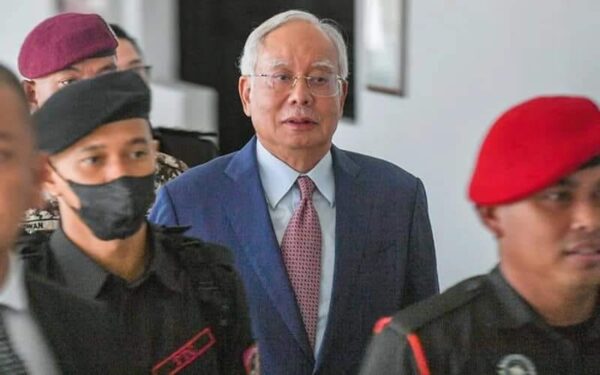AS Abdul Jalil Abdul Rasheed confirmed his stepping down as head honcho of Berjaya Corp Bhd (BCorp) effective March 31, the family-controlled conglomerate has sprung another surprise in its succession exercise albeit being inward looking vis-à-vis the appointment of joint CEOs in group veterans Vivienne Cheng Chi Fan and Syed Ali Shahul Hameed.
Doubtlessly, both are qualified leaders with Cheng having joined BCorp in 1989 (33 years) and has assumed executive directorship since 2005 with vast corporate experience in the area of finance, especially project financing, capital funding, debt restructuring, initial public offerings, risk management and group treasury cash management.

Syed Ali who joined BCorp in 1997 (25 years) was most recently the CEO of Berjaya Land Bhd, a position he will now relinquish. Over the years, he has been responsible for the development of several major local and international projects including the Inter-Continental and Sheraton Hotels in Hanoi as well as the Four Seasons and Ritz-Carlton projects in Kyoto and Kuala Lumpur respectively.
No qualms certainly that the Cheng-Syed Ali combination is formidable but what raised the eyebrows is the rarity of the co-CEO leadership model being practised in this part of the world let alone among Bursa Malaysia-listed companies.
Even though dubbed “the more uncommon leadership arrangements” by HR Asia, American subscription streaming service and production outfit Netflix Inc seems to be coping well by having two CEOs in co-founder Reed Hastings who oversees the streaming side of the company while Ted Sarandos guides Netflix’s content.
Closest to home, Korean electrical and electronic giant Samsung has two CEOs in Han Jong Hee and Kyung Kye Hyun who were both appointed to their position this year (it used to have three CEOs).
For the investors’ stand-point, it is hoped that the board of BCorp have dutifully weighed the suitability of implementing the co-CEO model within the group lest this is tantamount to end up as a botched business experiment.
To re-cap, the hype from Jalil’s emergence as the first non-family member group CEO in the so-called Vincent Tan-controlled conglomerate on March 16 last year has failed to sustain given soon after BCorp hit the intraday high of 50.5 sen (which was more than the stock’s six-year high) on April Fool’s day that year, a downward spiral ensued which culminated in BCorp ‘returning to square one’ judging from yesterday’s (March 21) closing at 23 sen.

In fact, BCorp’s could have fared worse for its share price has dipped to an intraday low of 21.5 sen with rumours rife of Jalil’s resignation as the company’s head honcho if not for the support rendered via a share buyback exercise whereby BCorp pumped in RM2.14 mil to purchase 9.33 million shares at a price range of 22 sen to 23.5 sen, according to the company’s immediate announcement on shares buyback to Bursa Malaysia.
On the bright side, HR Asia does acknowledge that it is not all doom and gloom for companies that have co-CEOs. “Counter-intuitively, joint executive leadership structures can and do work given the right conditions,” it pointed out.
Below is the management formula prescribed by HR Asia for companies with two CEOs:
- Leaders with complementary areas of expertise and knowledge
- Senior executives with emotional maturity
- Established command and control protocols for delineating management responsibilities
- Mechanism to resolve differences (eg split-testing to evaluate potential outcomes)
- Mutual common respect as partners
- Unified support on major decisions
“In the end, it needs to be a partnership. The division of labour must arise from the skills portfolio that each CEO brings to the company,” shared HR Asia.
“There needs to be boundaries and a demarcation of what roles each plays in the operational and decision-making process of the business. And finally, lines of communication must be clear and precise.”
A deft market observer who is familiar with BCorp has this to say: “As the company will eventually unveil the portfolios of its joint CEOs in the coming days, the more pressing matter is how shareholders would welcome the injection of old blood into BCorp’s management post-Jalil.”
He added: “But the ultimate concern is – which shareholders pray will never happen – is for the exercise to be a strategy for the patriarch to stage a comeback in the form of executive chairman at some point of time to oversee.”
At 9.33am, BCorp was down 0.5 sen or 2.17% at 22.5 sen with 1.1 million shares traded, thus valuing the company at RM1.22 bil. – March 22, 2022










